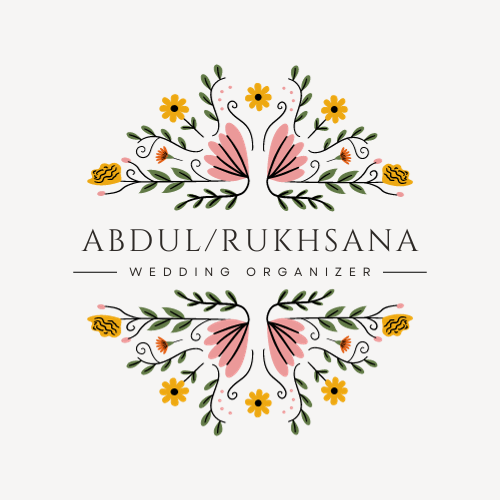
Islamic post-wedding services
Islamic post-wedding services are designed to provide support and guidance to newlywed Muslim couples as they navigate the early stages of their marriage. These services can help couples build a strong and lasting union by addressing various aspects of their relationship, including religious, emotional, and practical matters.
Here’s a more detailed description of Islamic post-wedding services:
Marriage Counseling: Marriage counseling is a central component of post-wedding services. Trained counselors or religious advisors offer guidance and support to couples, helping them communicate effectively, resolve conflicts, and strengthen their bond. This counseling may be provided individually or in group sessions.
Religious Guidance: Many Islamic post-wedding services emphasize the importance of religious values and practices in a marriage. Couples may receive religious guidance on how to maintain a spiritually fulfilling and God-conscious relationship.
Conflict Resolution: Couples are taught how to handle conflicts and disagreements in a constructive and respectful manner. Effective conflict resolution strategies are essential for a harmonious marriage.
Communication Skills: Effective communication is vital for any relationship. Couples are provided with tools and techniques to improve their communication, listen actively, and express their feelings and needs clearly.
Financial Planning: Financial matters can be a significant source of stress in a marriage. Couples may receive guidance on managing their finances, budgeting, and making decisions together to ensure financial stability and harmony.
Intimacy and Emotional Connection: These services may include discussions on intimacy, emotional connection, and how to maintain a healthy and fulfilling physical and emotional relationship within the bounds of Islamic principles.
Parenting and Family Planning: For couples planning to start a family, services may include advice on parenting, family planning, and the responsibilities of raising children in accordance with Islamic values.
Sexual Education: Some organizations offer sexual education as part of their post-wedding services, ensuring that couples have accurate and healthy information about intimacy within the confines of Islamic ethics.
Legal and Financial Advice: Couples may be provided with legal and financial advice, particularly in the context of managing shared assets, inheritance, and other legal matters relevant to marriage.
Support Groups: Some organizations may facilitate support groups where couples can interact with other newlyweds, share experiences, and learn from one another.
Mentorship: Couples may be paired with experienced mentors or older married couples who can offer guidance and share their wisdom based on their own marital experiences.
Follow-Up Sessions: Many post-wedding services include follow-up sessions to track the progress of the couple’s relationship and provide ongoing support as needed.
Resource Materials: Couples often receive reading materials, pamphlets, or access to online resources to help them continue their learning and growth as a married couple.
Islamic post-wedding services aim to ensure that newlywed couples have the tools and support needed to establish a happy, healthy, and God-conscious marriage. These services can be tailored to the specific needs and preferences of the couple and the religious or cultural context in which they are married.
